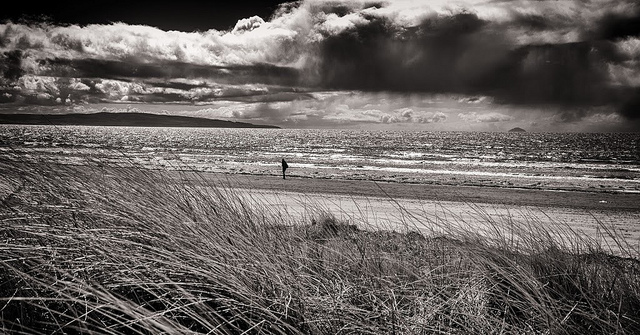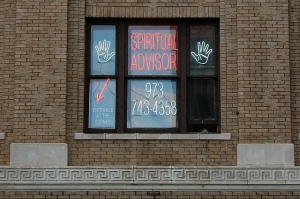Because, of course, the world is clamoring for an American perspective on the Scottish Independence referendum.
Seriously, though, I’ve watched the lead up to the vote with curiosity, and I want to see what happens next. It’s interesting how people define themselves and how an independent Scotland versus a UK Scotland is or is not part of that definition. It’s a question of identity.
My Grandma was born in Troon, Scotland (south of Glasgow) and came to the states during the middle of WWII, when she was 18. She stayed, married, had kids and moved around the US: New York, Colorado, Indiana.
She and my grandad took periodic trips to Europe. During one of these trips, they stopped in Glasgow. Since they were running out of clean clothes, Grandma popped down to a nearby laundromat. She saw a young couple and thought it would be fun to eavesdrop on the lovebirds. Much to her dismay, she couldn’t understand a word they said.
Granted, Glaswegian isn’t the easiest Scottish accent to get. When I studied at the University of Glasgow for a semester, I understood everyone just fine. I watched the movie My Name is Joe in the theaters over there and scoffed when I heard it was being released in the US with subtitles. Who needed subtitles? That was ridiculous…until I watched it five years after coming back to the states. Who needed subtitles? Me. Here’s a fine sample.
Grandma told me her laundromat story decades after the fact. Obviously, it was an important moment for her. As a college student, all I got out of that conversation was an epiphany that I didn’t have to pack clothes for every single day that I was traveling. Today, I hear the sadness in her story.
There are things that we think define us. What happens when we realize those things aren’t true any more?
I never talked about this with her, but from hearing stories, it seems that Grandma was “other” in the small towns where she lived with her husband and kids. Her accent made her stand out whether she wanted to or not. And there she was, the place where she shouldn’t stand out, the place where she should be able to blend in and eavesdrop like everyone else, only to discover that she was other there, too.






!["And could you tell me what everyone knows about it?" [Nemo] inquired, ironically -- Nemo is a hipster! #livetweetclassics](https://theemptypen.files.wordpress.com/2014/08/screen-shot-2014-08-12-at-12-07-52-am.png?w=720&h=149)

















 n a recent writer’s group submission, I described a big box store and its blue polo, khaki wearing employees.
n a recent writer’s group submission, I described a big box store and its blue polo, khaki wearing employees. way to the grocery store is a gas station that doubles as a gift store. They advertise gift-able holidays more than the price of gas. I’ve never stopped there before, for either gifts or gas.
way to the grocery store is a gas station that doubles as a gift store. They advertise gift-able holidays more than the price of gas. I’ve never stopped there before, for either gifts or gas.
 I spent most of last weekend parked in front of my TV cheering and screaming and hooting. I’ve spent my work days flipping between XLS spreadsheets and Google to get a quick peek at the scores. God bless Twitter for the running commentaries, although I have to stay away from them when I’m on the clock or I’d do nothing but scroll.
I spent most of last weekend parked in front of my TV cheering and screaming and hooting. I’ve spent my work days flipping between XLS spreadsheets and Google to get a quick peek at the scores. God bless Twitter for the running commentaries, although I have to stay away from them when I’m on the clock or I’d do nothing but scroll. ecently, I started watching Lost Girl, a show about a succubus. I seem to watch and read my share of supernatural creature stories. This one is interesting because it’s a creature we don’t see much of and because their very nature (draining a human of life force while having sex with them) brings up a lot of questions about sexuality and morality that aren’t touched much on TV. But, another question popped into my head.
ecently, I started watching Lost Girl, a show about a succubus. I seem to watch and read my share of supernatural creature stories. This one is interesting because it’s a creature we don’t see much of and because their very nature (draining a human of life force while having sex with them) brings up a lot of questions about sexuality and morality that aren’t touched much on TV. But, another question popped into my head. fter watching several First Sentence Challenges on YouTube, I’m convinced I would lose that challenge. OK, I really only had to watch one to come to that conclusion, but I kept going because YouTube is The Rabbit Hole.
fter watching several First Sentence Challenges on YouTube, I’m convinced I would lose that challenge. OK, I really only had to watch one to come to that conclusion, but I kept going because YouTube is The Rabbit Hole.